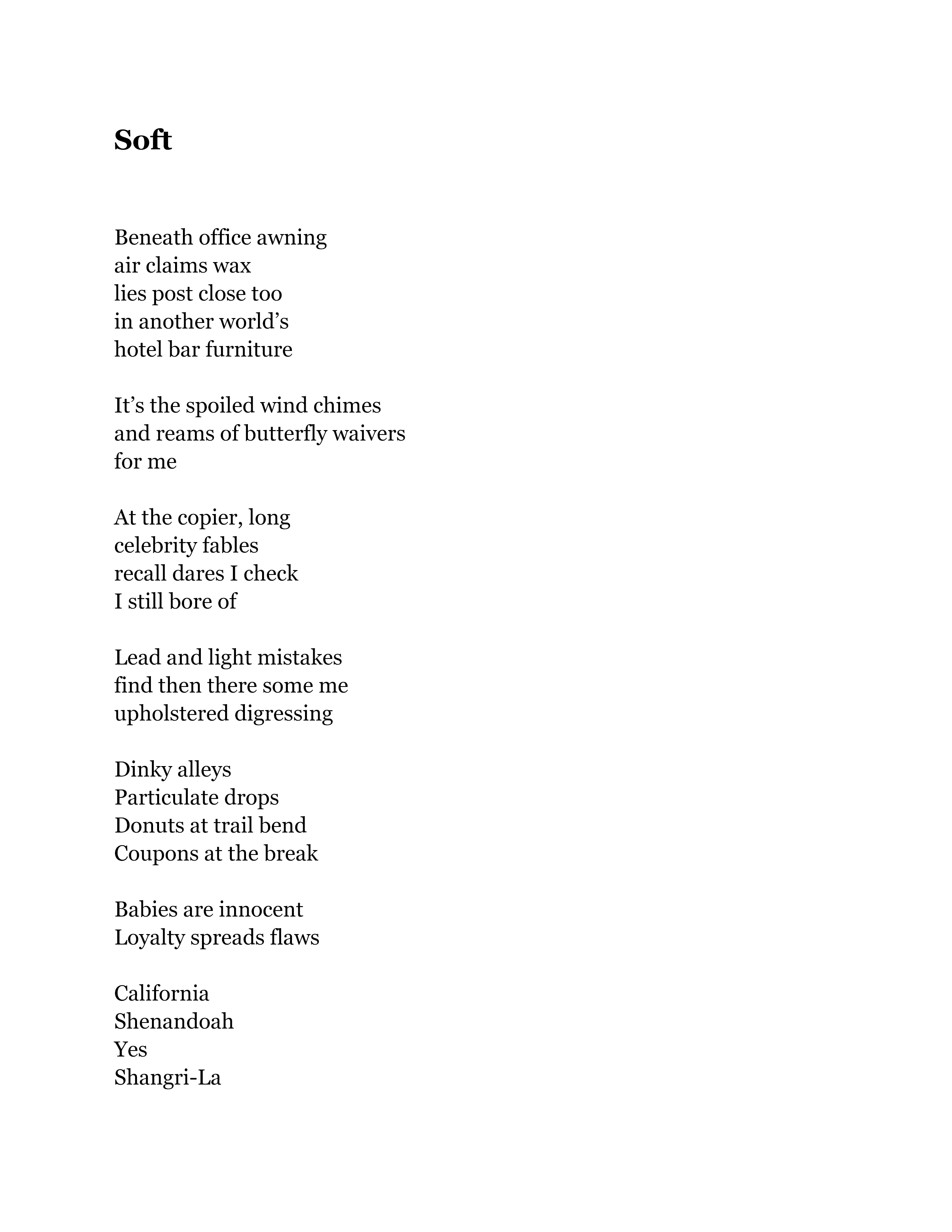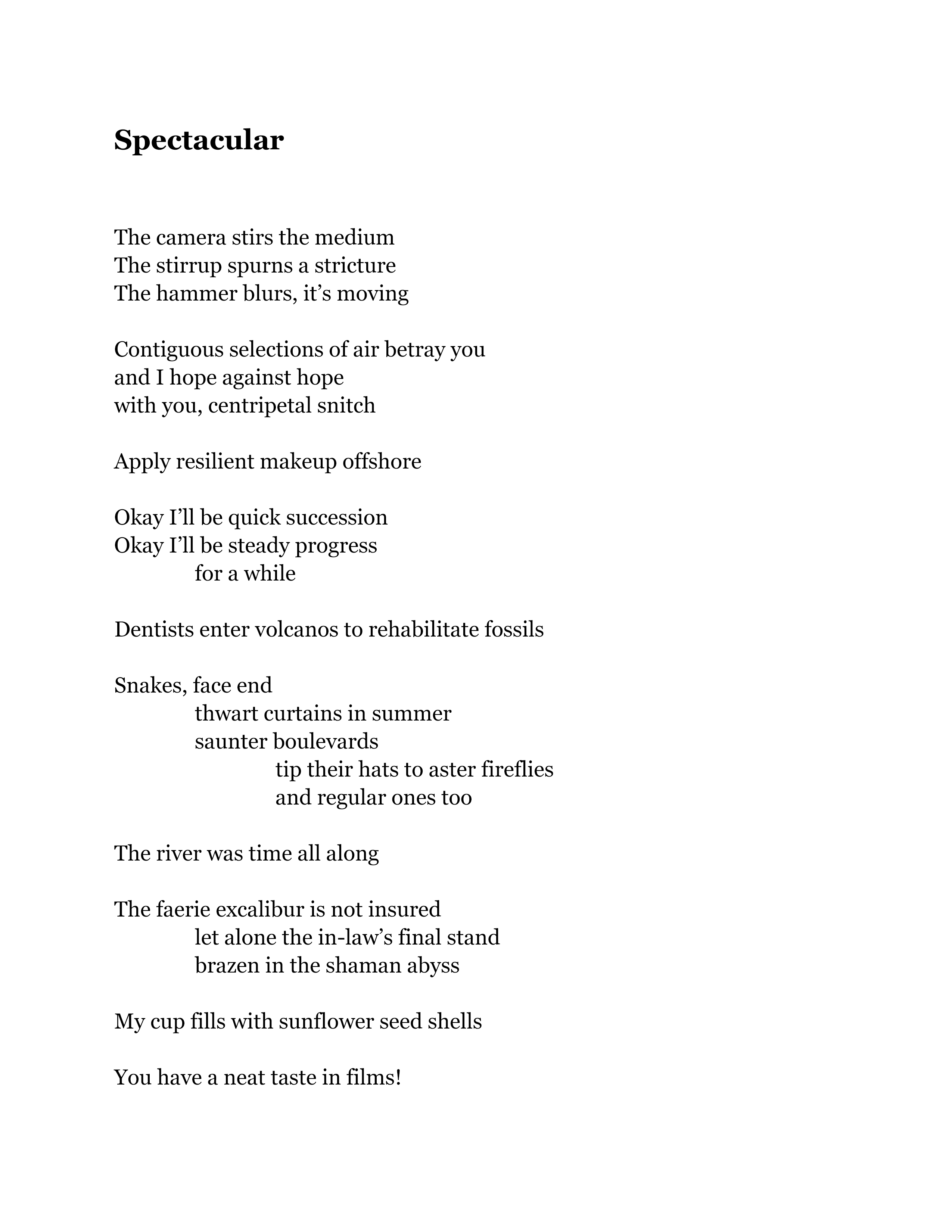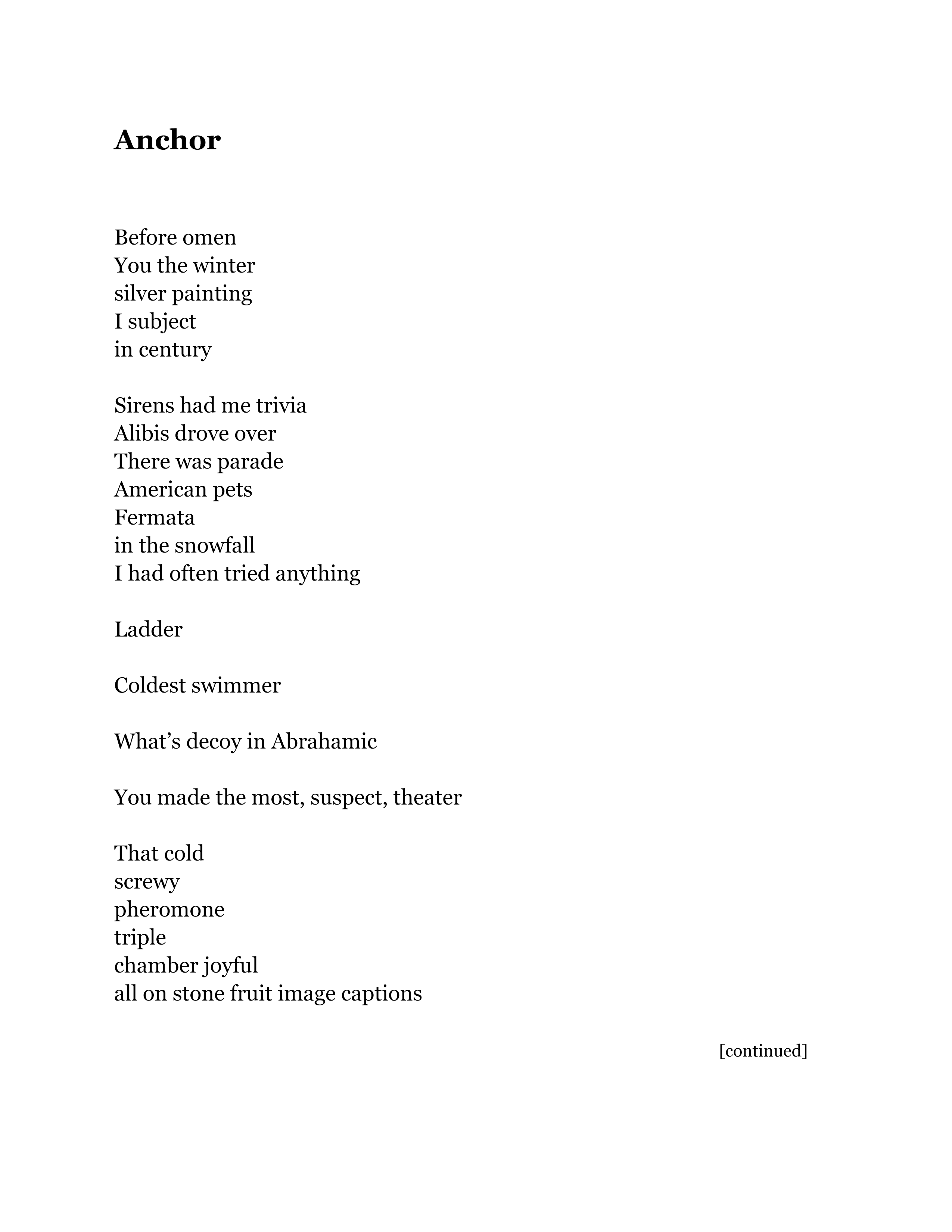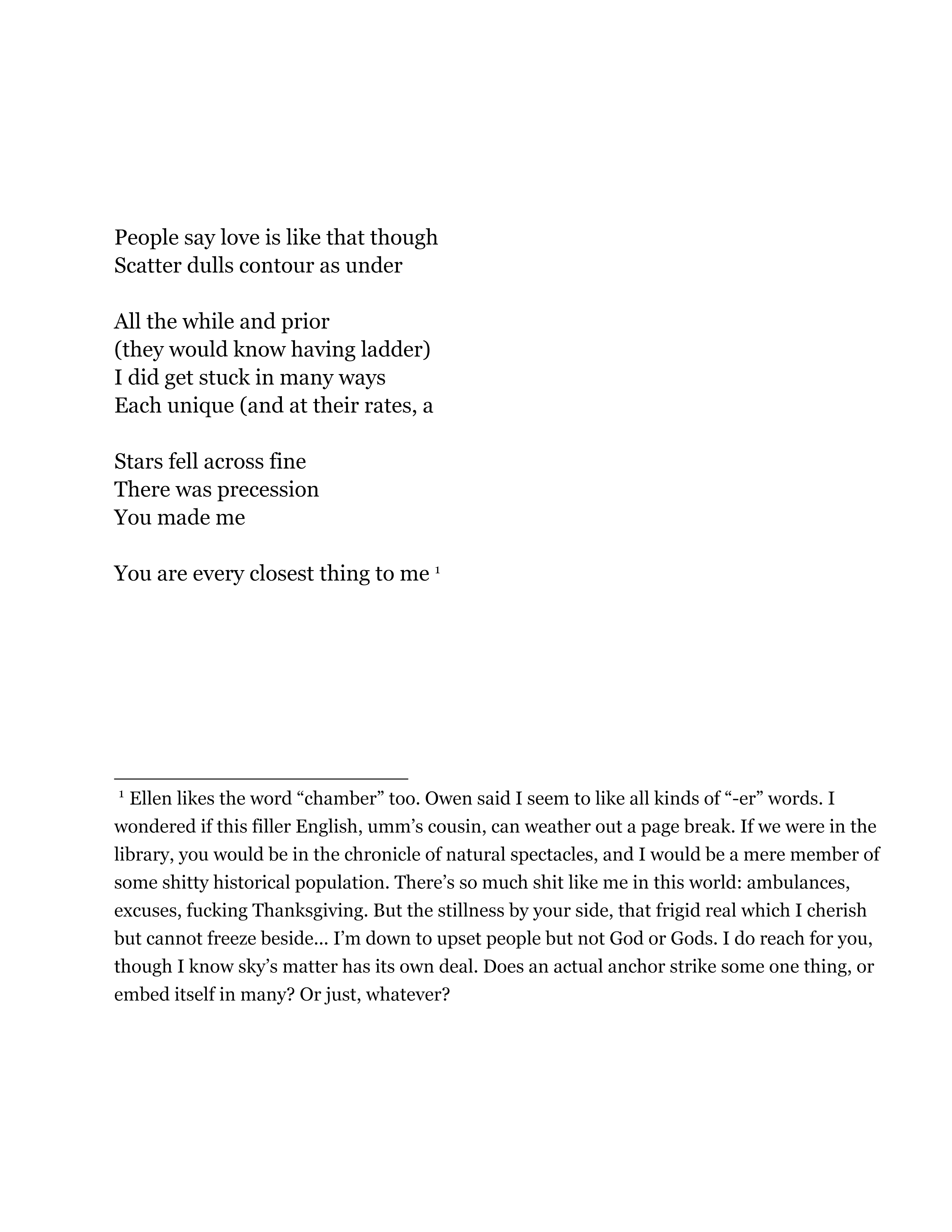3 poems by Damon Pham
1 essay by Teresa Scollon, on the poems of Damon Pham
Party Invitation
Here’s the thing about reading new poetry: I am new, too. It’s like going to a party where you don’t know anyone. Who are you going to talk to? Will anyone talk to you? It’s nerve-wracking. But how else are you going to make friends in this town? You tell yourself it’s good for you. You drive over there. Before you open the door to the party, you adjust your clothing and take a deep breath. Here you go.
Who’s Here?
These three poems show up and the “I” starts speaking. This I is somebody who talks with their hands, who doesn’t finish their sentences. Who lays strange words next to each other. A carelessness. A recklessness. A devil-may-care, quick run-your-hand-through-your-hair kind of language. Confidence. Who is this I, anyway? What are they talking about? The noise of the party is louder than wallpaper; it’s hard to focus. The I mentions an office awning. Seems like everyone else standing around knows what this office is. But I’m new to this town; I don’t know. But I can’t be asking questions about every little detail or I will look like a real buttinski. My dad used to say to us kids when he was annoyed: “Just listen. You might learn something.” So I listen for a while. An office awning, ok. And then they go inside and do some work at the photocopier. I have a poem about a photocopier myself, but this doesn’t seem like the moment to bring it up. The I has the floor, and they seem very comfortable keeping the floor in this strange syncopated choppy syntax. In this context, this person is…I don’t know. Playful. Would they want to have coffee? Maybe? Sometime?
In the next poems, the I starts speaking to “You”—somebody they care about. In “Spectacular” the poem ends “You have neat taste in films!” I like “neat.” It’s a 1970s term. Now it’s used by a certain kind of cheerful person. I look at the I a little differently. There’s a cool person in there. Someone who appreciates other people. That feels like a good moment. Like I’m not worried about my own inability to follow the conversation anymore. I have a glimpse of I’s heart and it’s a lovely heart. Then in “Anchor” it gets serious. Listen to this: “You are every closest thing to me.” That’s some true love talk. It’s clearly a private conversation even though a bunch of us are standing around.
Kites
Doesn’t somebody say that in every relationship there is an anchor and a kite? The writer Leif Enger takes a kite with him when he’s on the road, so if he has a moment to get outside, he can fly a kite. I met him once and he was a lovely, patient guy. Patience is a good quality for kite flying.
And here is this kite-person talking through these poems. Patience is needed. These three poems keep talking, charting out a strange world where things combine in ways that are new to me. And here’s something I notice: the I is staking out where they stand, where they belong. Even though the I talks cattywampus, they are making some continuous adjustment between the world as they find it and some inner world. It’s a person who’s discerning: okay, this is for me. This part, here. This thing. Like in “Spectacular”: “Okay I’ll be quick succession / Okay I’ll be steady progress / for a while.” I think, okay, I get that. The world is crazy town 24-7. But I can figure out the next thing. I can be steady progress for a while. For at least the next five minutes.




